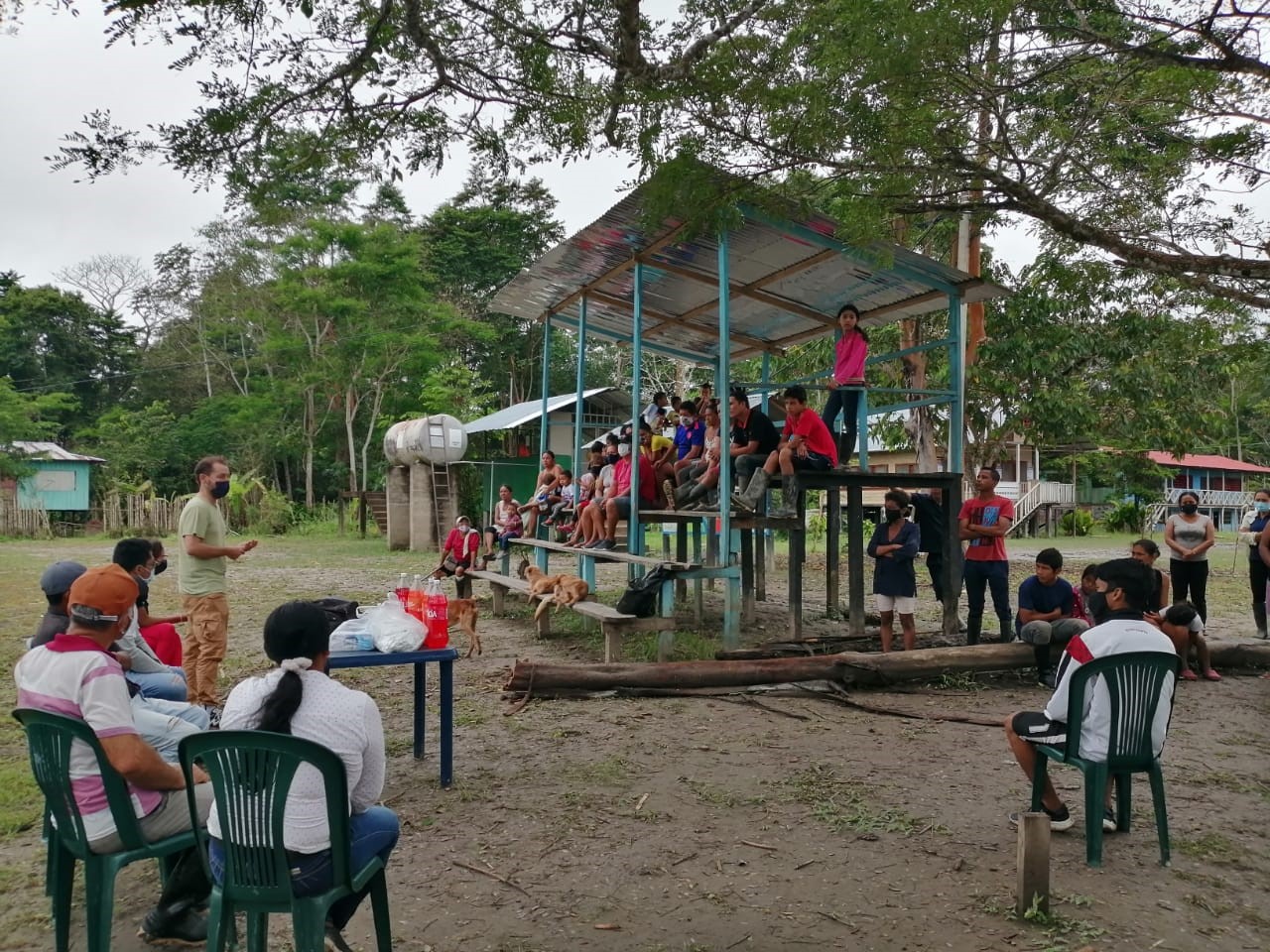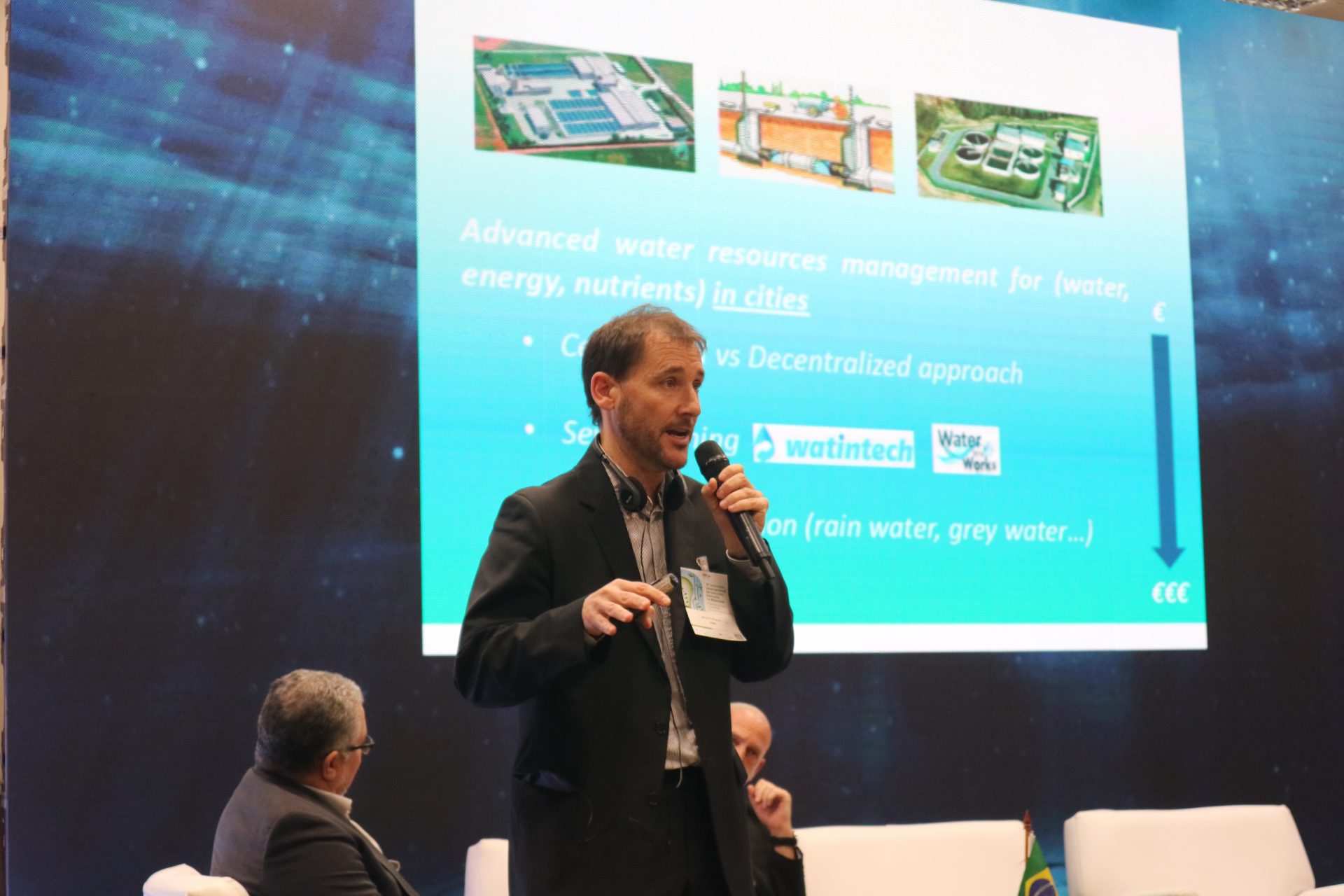BLOG | Bluephage
“The water system is under pressure all over the world, and the problem lies in how we use the available resources”

Interview with Ignasi Rodriguez-Roda Layret (Barcelona, 1969), full professor in chemical engineering at the University of Girona (UdG), director of the Institute of Environment, and senior researcher of the LEQUIA-UdG research group.
You have an impressive background in Chemistry, Civil Engineering, and Biotechnology. Can you explain how you became interested and specialized in water?
My academic background is quite diverse and is the product of a mix of personal and context-driven decisions. I studied Chemistry at the Universitat Autònoma de Barcelona, specializing in Chemical Engineering. My master’s degree was in Biotechnology, which complemented my training in the field of biological and biochemical reactions and made me discover the world of wastewater treatment as an example of a complex biotechnological process. My doctoral thesis focused on optimizing with artificial intelligence techniques the biological process of urban wastewater treatment plants, a field in which we were pioneers in the 1990s and has now finally attracted the interest of the administration and companies in the water sector.
Regarding the global water crisis, how do you think different sectors, such as governments, industries, and water managers, are working together to mitigate this problem? Are there any success stories you would like to highlight?
I have a somewhat divergent opinion from most of my colleagues. The discourse focuses on the global water problem and scarcity, but we are giving a very negative message, especially to the new generations. When I go to schools to talk about water, I first say that if we rationalize its use, diversify the sources, treat it well, and recover it efficiently, we should not have water problems, at least in Catalonia. I honestly believe that we should not have a water supply problem except for certain parts of the world. The water system is under pressure all over the world, and the problem lies in how we use the available resources.
Obviously, the administration must know how to manage and preserve the resources and use them in the interests of the citizens and then for economic exploitation. But I think that technically the water issue is quite solved, and I believe that the trinomial of administration, industries, and legislation works because, in the end, it is a question of efficiency. We have the knowledge and the tools. The limiting factor is that being a human right and a natural resource, many people must understand that they have to pay for water. And the cost is very high if we want to guarantee high-quality water in our tap 7/24.
Technologically, many things can be done, but there are two main barriers: legislation and acceptance by citizens. Governments must be very cautious before putting regulations in place, and when they do, they must guarantee that they can be implemented correctly and that everyone will have the economic resources to carry out these measures. Citizens are becoming increasingly aware of the importance and value of water and will gradually accept that it is often necessary to reuse water and look for alternative sources, such as rainwater harvesting and desalination, in certain places.
An excellent example of success could be that of Switzerland, which held a referendum to implement advanced treatments in its urban wastewater treatment plants, ensuring the removal of emerging pollutants beyond existing legislation. The citizens voted yes, despite the additional cost to them.
We want to learn more about your project to supply drinking water to the Amazon. Can you tell us about the challenges you faced and the impact of your project?
It was a small cooperation project funded by the University of Girona, and, as is often the case with this type of project, there is an initial cultural barrier that generates mistrust and a very different way of seeing the challenge and the possible solution. Getting to know and gain trust between the local community and the “rescuers” who land from more developed countries takes time and effort.
We developed this project in the Colombian part of the Amazon rainforest, in Leticia, where many indigenous communities with different origins and customs live, mostly in areas close to the river but many others much further away. The most surprising thing is that they have water quality problems, although the Amazon is the largest river in the world, and it rains almost every day. The river is quite polluted, rainwater is not recovered, or it is collected in dirty tanks with organic matter, and therefore they usually have many health problems associated with poor water quality. But they are not fully aware of this, and they do not accept that a white “conqueror” comes along and tells them what problem they have and how they should solve it. In many cases, they believe that the main source of contamination is not anthropogenic, and, on the other hand, they are communities that are more accepting of illness and death. They also do not blame diseases on water pollution but on the lack of resources, such as medicines, hospitals, or electricity.


We have been going there for many years since 2015, and whenever we have analyzed their main water resources, we have seen that it was not potable or fit for human consumption. Beyond fecal coliforms, we have found high concentrations of viral contamination. At best, they boil the water they need for drinking and cooking. We have provided them with household filtration systems that work by gravity (or by hand pumping), and we have trained the population in their use and maintenance. If they do not take ownership and adopt the technology, it will surely stop working the day we leave. Among many other needs, we/they must have easy and quick water quality measurement systems to ensure that the treated water is safe to drink and that the technology is being operated correctly.
Are sufficient funds allocated to technological development for public health prevention purposes? How do you see progress in implementing new technological solutions to mitigate the water crisis in different sectors and regions worldwide?
Despite the regulatory lag and shortcomings, the work is more or less done in developed countries. Much money has been invested. Now we are concerned with maintenance and optimization, and we are gradually moving towards the new paradigm of resource recovery (water, energy, fertilizers, and other high-value-added compounds) rather than the linear approach of treatment and disposal. There are much more advanced and effective technologies for treatment and recovery than those that are commercialized and deployed worldwide, and we have room for improvement in case the availability of water resources decreases as predicted by climate change. All new compounds of emerging concern that could potentially affect human or ecosystem health are also closely monitored analytically, and when high levels are detected or a potential impact is determined, the process is initiated to include them in new regulations.
In contrast, the least developed countries hardly have sewage, drinking water, or networks. In the best of cases, they have decentralized sanitation, with poorly designed and operated septic tanks. They collect natural water from the environment or buy bags of drinking water with guaranteed quality (at a very cheap cost, but often excessive for their economy, and as a side effect, they fill the environment with plastic waste). Surely their solution does not imply reproducing the urban water cycle system in Europe, the USA and the most developed countries, significantly impacting construction, maintenance, and energy consumption. Instead, it is about moving towards a more modern vision of decentralization, separating at source and enhancing recovery, saving the high quality water we waste to “empty” toilets, and the energy needed to transport wastewater up and down. The technology to do so is there, and the cost is perfectly affordable, both for governments and if we consider it at the individual level and compare it with what we spend on cell phones, energy, and many unnecessary products that we buy unconsciously in this consumer society in which we live (me too).
As a professor of the “Master in Science and Technology of Water Resources” at the UDG, what skills do students learn, and how do you see the new generations facing the water cycle?
Luckily, the new generations are already aware of environmentalism; in fact, I think we have exaggerated the discourse too much, and young people feel that we are killing the planet and that it is already at a point of no return. They don’t seem to want to fight for anything anymore because they see no hope. It is good to create this climate of opinion and clearly explain the causes and effects of climate change, but we must be more positive and see that beyond the responsibility, we have alternatives to do better and ensure the availability of sufficient and quality water resources for the uses we should need.

In our master’s program, students learn about technology, water environment, and water uses, including science, technology, and economics. They acquire specific and general skills in the field of water resources, but, on the other hand, it is the only master’s degree in the world that does so through an innovative teaching methodology of problem-based learning. This methodology allows students to acquire personal skills that enable them to enter the productive sector, such as communication, empathy, responsibility, team building and leadership. Personal skills are fundamental for working in the water sector and in other sectors. Explaining the concept of drinking recycled water from the toilet to the public requires excellent communication skills.
Finally, we would like to know what you have been working on lately and what exciting projects or initiatives you are currently involved in.
The advantage of doing research in an independent center like the university is that you can divide your research according to the needs and interests of the moment. Right now, in lequia-UdG (research group of excellence of the UdG), I work on projects with a very important social aspect, such as Environmental Justice. We address the impact of water floods and drought in cities from a multidimensional perspective, developing vulnerability indicators according to the characteristics of the affected society and the natural environment, facilitating urban planning, and defining strategies that facilitate society’s ecological (and digital) transition. We obviously maintain open lines of research and development in using membranes for water treatment, recovering resources from wastewater, ethical implementation of artificial intelligence in the sector, or standardizing nature-based solutions.
Ignasi Rodriguez-Roda Layret (Barcelona, 1969), full professor in chemical engineering at the University of Girona (UdG), director of the Institute of Environment, and senior researcher of the LEQUIA-UdG research group. He has been the head of the technologies and evaluation area of the Catalan Institute for Water Research for ten years, and scientific director of the Water Campus of the UdG. Among other teaching merits, he has promoted the implementation of several innovative methodologies at Bachelor and Master’s degree, such as problem-based learning and collaborative online international learning. Very active in development cooperation projects in Africa, Asia and South America.


